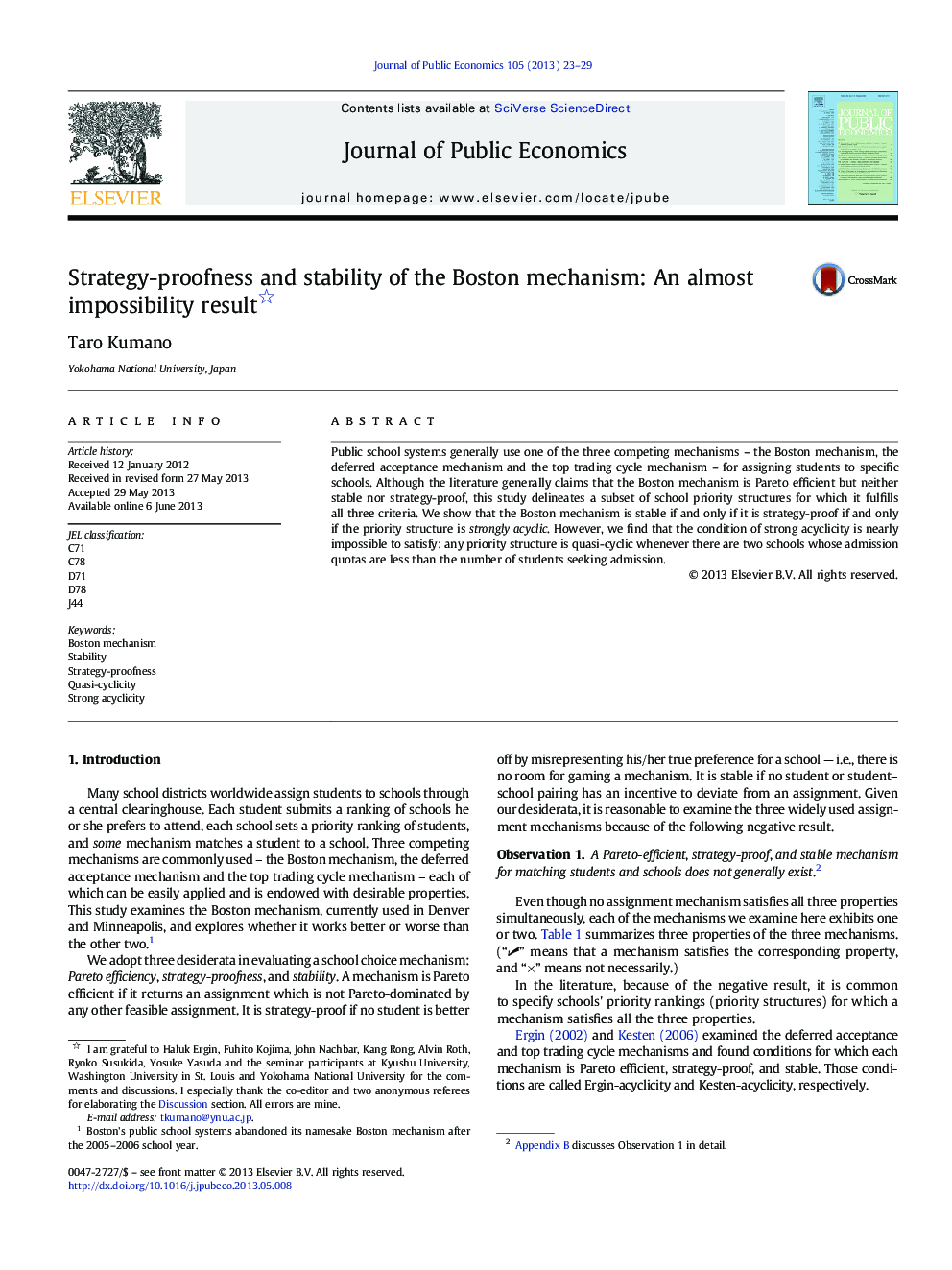| Article ID | Journal | Published Year | Pages | File Type |
|---|---|---|---|---|
| 969788 | Journal of Public Economics | 2013 | 7 Pages |
•We consider strategy-proofness and stability of the Boston mechanism.•We characterize strategy-proofness and/or stability by strong acyclicity.•Strong acyclicity is nearly impossible to satisfy in practice.
Public school systems generally use one of the three competing mechanisms – the Boston mechanism, the deferred acceptance mechanism and the top trading cycle mechanism – for assigning students to specific schools. Although the literature generally claims that the Boston mechanism is Pareto efficient but neither stable nor strategy-proof, this study delineates a subset of school priority structures for which it fulfills all three criteria. We show that the Boston mechanism is stable if and only if it is strategy-proof if and only if the priority structure is strongly acyclic. However, we find that the condition of strong acyclicity is nearly impossible to satisfy: any priority structure is quasi-cyclic whenever there are two schools whose admission quotas are less than the number of students seeking admission.
